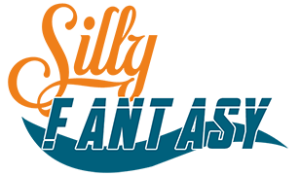A cover letter is a vital component of a job application. It is a professional letter that accompanies a resume and is intend to introduce the applicant to the hiring manager. A cover letter is an opportunity for a job seeker to highlight their qualifications and make a great first impression. A compelling motivational letter is essential to stand out from the competition and increase the chances of landing an interview. In this article, we’ll explore some tips for writing an effective cover letter with or without the help of a cover letter writing service.
But, writing a compelling motivational letter can be challenging, especially for those who have yet to become experienced in crafting such documents. Many job seekers need help to strike the right balance between being professional. Personable and may need help communicating their qualifications and value to potential employers.
This is where a cover letter writing service can be helpful. A cover letter writing service is a professional service that assists job seekers in creating high-quality motivational letters tailored to specific job applications. These services use experienced writers who understand what employers are looking for in a cover letter. How to showcase a job seeker’s skills and experience.
Job seekers provide the service with their resumes when working with a motivational letter-writing service. A description of the job they are applying for, as well as any other relevant information or documentation. The service’s writers will then use this information to craft a custom cover letter that communicates the job seeker’s qualifications and interest in the position.
Tailor the cover letter to the job description.
One of the most crucial things to keep in mind when writing a cover letter is to tailor it to the job description. Hiring managers receive hundreds of applications, and a generic motivational letter is likely to be notice. Read the job description and highlight the key requirements and qualifications. Use these as a guide to creating a cover letter that speaks to the employer’s needs. Customizing a cover letter for a specific job shows the hiring manager that the applicant has taken the time. An effort to research the company and am interested in the position.
Use a professional format and tone.
A motivational letter should be format , with a clear and concise structure. Use a conventional typeface like Times New Roman or Arial, and keep the letter to one page. Use a professional tone and avoid slang, jargon, or casual language. The motivational letter should be correct and free of spelling and punctuation errors. Use a formal greeting, such as “Dear Hiring Manager” or “Dear [company name] Recruiter.”
Start with a compelling opening.
The cover letter’s opening should be attention-grabbing and state the applicant’s interest in the position. Avoid using generic statements like “I am writing to express my interest in the position.” Instead, start with a statement that shows enthusiasm for the job. Captures the hiring manager’s attention. For example, “I am excited to apply for the [position title] position at [company name] as it aligns with my skills and experience.”
Showcase relevant skills and accomplishments.
A motivational letter is an opportunity for the job seeker to highlight their relevant skills and accomplishments. The letter should focus on how the applicant’s skills and experience align with the job’s requirements. Use specific examples to illustrate achievements that showcase the applicant’s capabilities. Quantify accomplishments whenever possible, such as “increased sales by 20% in the first quarter” or “reduced customer complaints by 50%.”
Prove knowledge of the company.
An effective motivational letter should show that the applicant has done their homework and knows something about the company. Research the company’s mission statement, recent news, and any recent developments in the industry. Use this knowledge to tailor the letter and show how the applicant can contribute to the company’s goals. For example, “I was impress to learn about [company name]’s commitment to sustainable development. my green energy expertise would be a valuable asset to your team.”
Close with a call to action.
The closing of the cover letter should be strong and persuasive. Use a call to action to prompt the hiring manager to take the next step, such as “I look forward to the opportunity to discuss my qualifications further in an interview” or “Please feel free to contact me at [phone number] or [email address] to schedule an interview.”
The Bottom Line:
In conclusion, a well-crafted motivational letter can improve a job seeker’s chances of landing an interview by customizing the letter to the job description. Using a professional format and tone and starting with a compelling opening. Showcasing relevant skills and accomplishments, demonstrating knowledge of the company. A job seeker can make a strong impression on the hiring manager by closing with a call to action.








